 Genadijus Sokolovas is affectionately known as G to those who have encountered his genius in the swimming world.
Genadijus Sokolovas is affectionately known as G to those who have encountered his genius in the swimming world. G, originally from Lithuania, obtained his doctorate from the Russian Academy of Physical Education in Moscow and was the Director of Physiology & Director of Sport Science at USA Swimming between 2000-2008.
During that time, he tested, evaluated and advised thousands of athletes and coaches, including Michael Phelps, Natalie Coughlin, Dara Torres, Jenny Thompson, Ryan Lochte, Aaron Peirsol, Brendan Hansen, Ian Crocker, Katie Hoff, Kate Ziegler, Misty Hyman, Amanda Beard, Tara Kirk, Megan Quann-Jendrick, Neil Walker, Gary Hall Jr., Anthony Ervin, Ed Moses, Lenny Krayzelburg, Jason Lezak and Cullen Jones.
G also provided a multitude of physiological testing and training advice to coaches at Stanford, California Berkeley, Texas, Michigan, Florida, Southern California, Alabama, Auburn, Arizona, Arizona State, North Carolina, South Carolina, Washington, Oregon, Nevada, Utah, Denver, Colorado State, and other Olympic coaches in the sports of triathlon, running, cycling, pentathlon, rowing, race walking, fencing, gymnastics and wrestling.
 But G does not stand alone. His wife, Dr. Birute Sokolovas (shown on left with their daughter) is his amazing collaborator and an innovative scientist in her own right.
But G does not stand alone. His wife, Dr. Birute Sokolovas (shown on left with their daughter) is his amazing collaborator and an innovative scientist in her own right. Their partnership reminds us of the modern-day sports equivalent of Marie and Pierre Curie, the world-renowned Nobel Prize scientists of the early 20th century.
Doctors G and B collaborate on a wide range of innovative tools ranging from online software training programs to vibration equipment used by Olympic medalists. Dr. B, with a doctorate in exercise biochemistry, specializes in research on biochemical blood parameters in athletes with a focus on exercise biochemistry, physiology and nutrition.
Most recently, the world of open water swimming is beginning to benefit from the collective genius of Drs. G and B.
They are not only studying the differences in high-tech swim suits and wetsuits and the most efficient ways to lift up one's head in the open water from a biomechanical perspective, but they are also using their scientific minds to help open water athletes prepare themselves for marathon swims.
With Drs. B and G’s permission, below are their initial nutritional recommendations to a pro Italian swimmer who competes in 12- and 24-hour pool races and the FINA Open Water Swimming Grand Prix races.
Nutrition Leading up to a 24-hour Marathon Swim
Carbohydrates are primary source of energy for the higher intensity exercises, especially during the competition. Carbohydrates are stored in the muscles, liver and blood in the form of glycogen and glucose. It is easy to use both of these substrates to replenish the ATP (Adenosine Triphosphate) molecules, which are the source for energy in the body. If the race is longer and less intensive, the more energy comes from burning fats and less from carbohydrates. Contribution from fats and carbohydrates will be similar exercising at moderate or lower intensity.
To prepare for a 24-hour race, swimmers should slightly change their diet to accumulate necessary amount of energy. Normal diet for the endurance sports should include about 60% of carbohydrates, 25% of fats, and 15% of proteins. Diet should include slightly higher intake of fats for approximately two weeks before a 24-hour race. Athletes should consume primarily unsaturated or so-called "good" fats, such as vegetable oils, fish, margarine and yogurt. Athletes should try to avoid saturated fats, which have higher cholesterol. Examples of food with saturated fats include cakes, ice cream, chocolate and butter.
The closer the race, the more important it is to load one’s muscles with carbohydrates. Muscles can store more glycogen if the nutritional plan includes more carbohydrates. 2-3 days before the race, athletes should consume primarily carbohydrates. There are two types of carbohydrates - simple and complex.
Simple carbohydrates are important during and immediately after the workouts, while complex carbohydrates are important between the workouts because of slower digestion and release of glucose in the blood. As result, muscles can store more glycogen from complex carbohydrates. Examples of simple carbohydrates include fruits, dairy products, honey and raisins. Complex carbohydrates are found in bread, corn, pasta, potatoes, rice and beans. Swimmers need up to 10 grams of carbohydrates per body kilogram a day.
To store higher amount of glycogen and recover faster, swimmers should eat more frequently and smaller portions.
It is also important to begin replenishing muscles glycogen during the workout as opposed after the workout. Simple carbohydrates and drinks are great for workouts. Swimmers should also carry some snacks in their bags in order to eat frequently. Snacks should contain carbohydrates as well as some proteins, which are necessary to build the enzymes, hormones, blood cells, muscles and other body tissues. Amount of proteins should be between 10% and 15% of one’s total intake. The good source of proteins is in meat, fish, eggs, nuts and cheese.
Pre-Race Nutrition
Hydration is an important part of pre-race nutrition. Studies indicate that athletes never have enough drinks and foods during the race. Therefore, it is vital to drink plenty of fluids and eat carbohydrates 24 hours before the race. Drinks should include electrolytes and minerals, which play an important role in muscles contractions. High carbohydrate breakfast should be finished 90-120 minute before the race.
After breakfast, swimmers should have some snacks, such as energy bars with high concentration of carbohydrates. Fluids before the race should include energy drinks with electrolytes (e.g., Gatorade or POWERade). Some studies recommend drinking chocolate milk right before and during the race. Chocolate and milk include some fats, which are essential for the energy over longer distances. In fact, fats have more calories than carbohydrates or proteins.
Hydration and Nutrition during the 24-Hour Race
Studies indicate that swimmers lose 100-150 grams of fluids for every 1,000 meters of the race. This is the minimum amount fluid swimmers should drink every 15-20 minutes. Since the body does not consume every gram of the drink, athletes should drink about 200 grams every 15-20 minutes.
During a marathon race, swimmers burn up to 700 calories per hour. Burned calories have to be replenished to maintain swimming intensity. Some energy should be replaced with gel packs and high-concentrated energy drinks (e.g., Gatorade or chocolate milk). However, a 24-hour race is too long to rely on gels and drinks only. It is highly recommended to have some solid high-energy food during the race at least once every 45-60 minutes. Solid high-energy food may include few bites of energy bars (e.g., PowerBars), fruits or bagels. Most of energy bars contains some amount of proteins, which are necessary to protect muscles from damage during the long duration of exercise.
Electrolytes are important during the marathon swim. Lack of electrolytes may result in muscle cramps and weakness. To avoid deficiency of electrolytes, athletes should have drinks and gels with electrolytes, such as sodium and potassium.
Hydration and Nutrition after the 24-Hour Marathon Swim
Whatever amount of drinks and food swimmers will consume during the 24-hour race, it is never enough to keep up with dehydration and fatigue. Swimmers must continue drinking and eating after the marathon swim. Dehydration and exhaustion will be felt for several days or even longer. Simple carbohydrates are important immediately after exercise, while complex carbohydrates are necessary during big meals. Since muscles will be damaged after the race, swimmers should eat a sufficient amount of proteins.
Because there is a possibility of weakness of immune system after the marathon swim, Vitamin C, Vitamin E and glutamine can help strengthen one's immune system.
Copyright © 2009 by Open Water Source

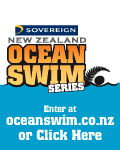
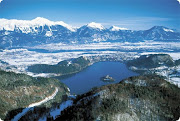
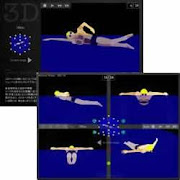
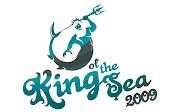
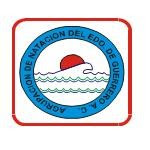
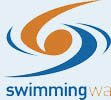
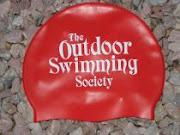

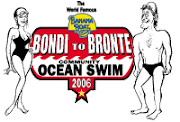


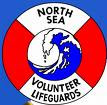
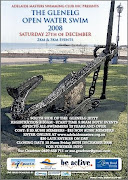





1 comment:
Found a great hydration tool for distance swimmers. It's called AquaJoe. It's a sports drink powder holder/dispenser for athletes. There is a video of it on www.aquajoe.com
Post a Comment